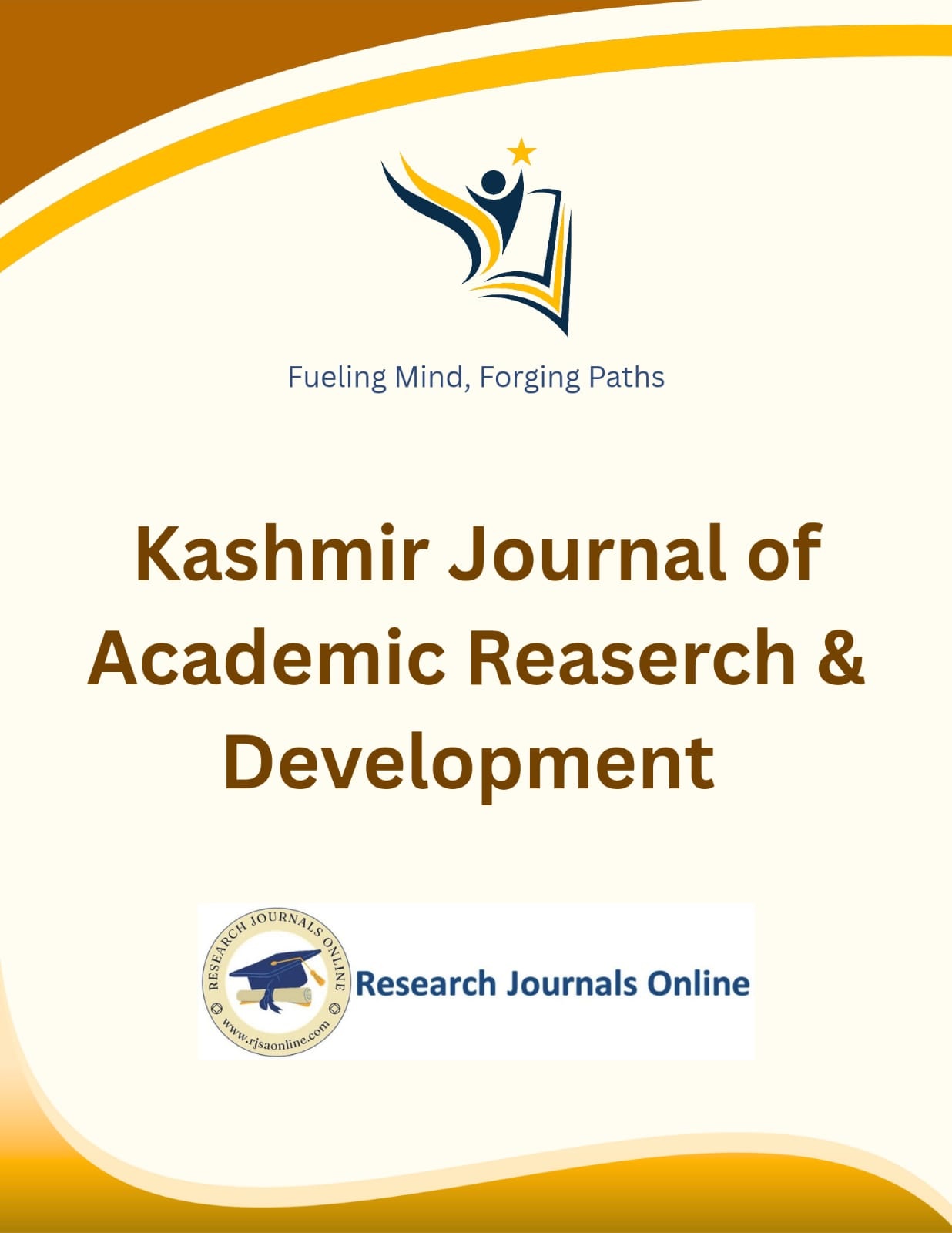Journal Information:
- Name of Journal: Kashmir Journal of Academic Research and Development
- Journal Frequency: Quarterly
- Online ISSN (E): 3106-7085
- Online ISSN (P): 3106-7077
- Language: English
- Name of Publisher: RESEARCH JOURNALS ONLINE (SMC-PRIVATE) LIMITED
- Review Type: Double Blind Peer Review
- Area of Publication: Multidisciplinary Research (Education, Development Studies, General Sciences)






